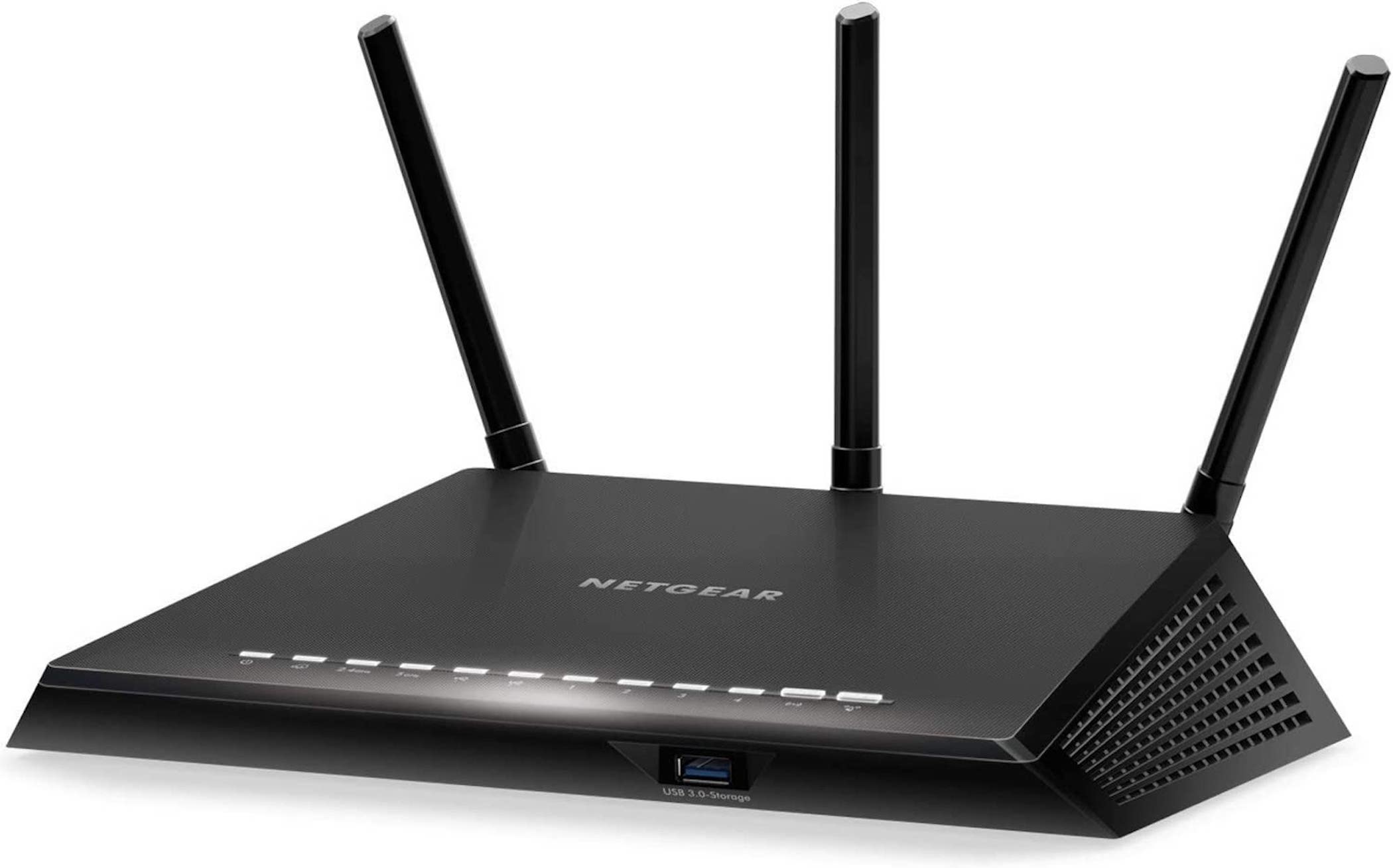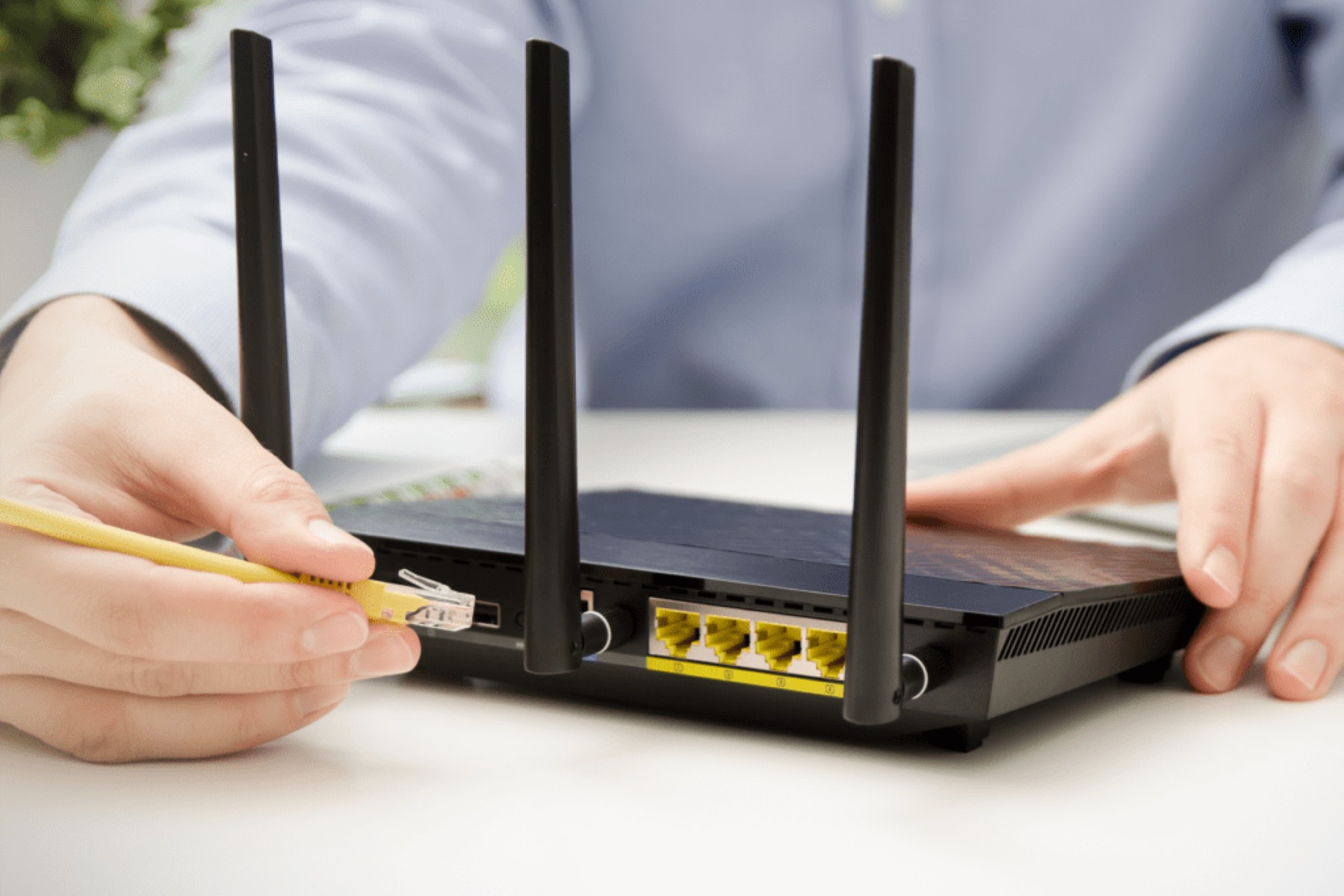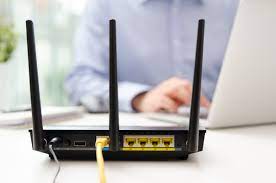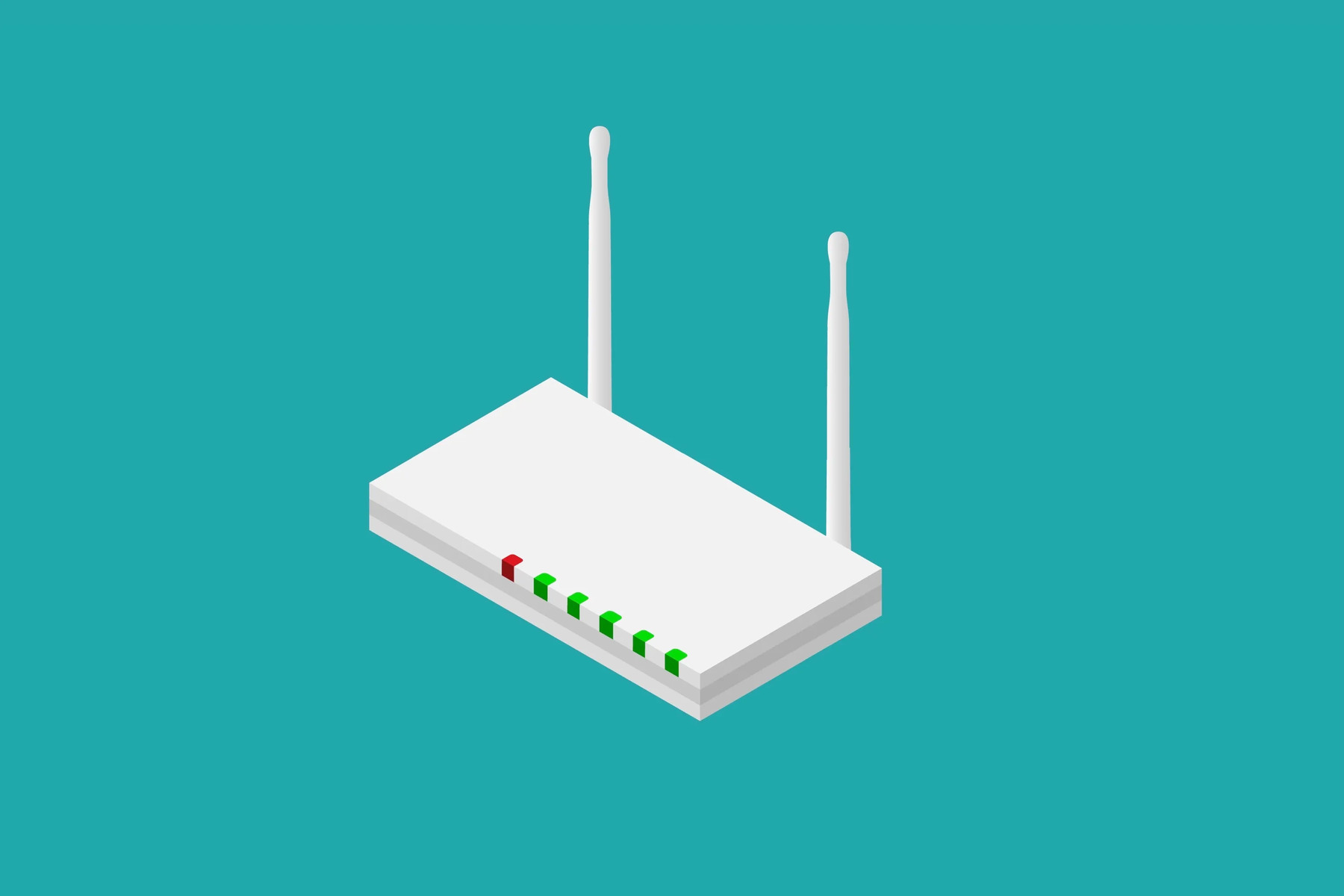Introduction
Welcome to the world of networking, where the use of routers plays a pivotal role in ensuring smooth and efficient communication. In today’s interconnected world, routers have become an essential component of any network infrastructure. They provide numerous advantages that enhance network performance, security, and scalability.
Router technology has evolved significantly over the years, becoming more sophisticated and powerful. Routers are designed to direct network traffic, efficiently transmit data, and provide enhanced network security. With their ability to support multiple devices and ease of network management, routers have become a cornerstone of modern network architecture.
In this article, we will explore the general advantages of using routers on your network. We will delve into the various benefits they bring and how they can improve your network’s performance and security. Whether you are a small business owner, a home network user, or an IT professional, understanding the advantages of routers will empower you to make informed decisions about your network infrastructure.
Enhanced Network Security
One of the primary advantages of using routers on your network is the enhanced network security they provide. Routers act as an important line of defense against potential security threats, such as unauthorized access, malware, and data breaches.
Routers use various security features, including firewalls, network address translation (NAT), and virtual private network (VPN) capabilities, to secure your network from external threats. Firewalls analyze incoming and outgoing network traffic, blocking any suspicious or unauthorized connections. NAT masks the internal IP addresses of devices on your network, making it harder for hackers to identify and target specific devices.
Furthermore, routers enable you to set up VPN connections, which create a secure tunnel for transferring data between remote locations. This is especially beneficial for businesses with multiple branch offices or employees working remotely. VPNs encrypt data, protecting it from unauthorized access and ensuring secure communication over the internet.
Additionally, routers allow you to implement access control lists (ACLs), which provide granular control over network traffic. ACLs allow you to define rules and policies for network traffic, specifying which devices or users are allowed or denied access to certain resources. By effectively managing network access, you can prevent unauthorized users from compromising your network security.
Overall, the enhanced network security provided by routers helps safeguard your data and privacy. With the increasing prevalence of cyberattacks and the growing need for secure communications, having robust network security measures in place is essential.
Efficient Data Transmission
Routers are instrumental in ensuring efficient data transmission within a network. They play a vital role in directing network traffic, optimizing data flow, and maximizing network performance.
One of the key elements of efficient data transmission is the ability of routers to select the best path for data packets to reach their destination. Routers use routing protocols, such as Border Gateway Protocol (BGP) and Open Shortest Path First (OSPF), to determine the most efficient routes. By dynamically analyzing network conditions and considering factors like traffic congestion and network latency, routers can choose the fastest and most reliable paths for data transmission.
Another factor that contributes to efficient data transmission is the use of packet switching. Routers break data packets into smaller units and transmit them individually. This allows multiple packets to be transmitted simultaneously, reducing the overall transmission time. Furthermore, routers can prioritize certain types of traffic, such as real-time video and voice applications, ensuring seamless and uninterrupted communication.
Routers also facilitate the process of load balancing, distributing network traffic across multiple pathways. This helps prevent network congestion and ensures that no single link becomes overwhelmed with data. By evenly distributing the load, routers optimize network performance and improve data transmission speed.
In addition, routers support Quality of Service (QoS) functionalities, enabling you to prioritize specific types of traffic based on their importance or bandwidth requirements. For example, you can give higher priority to video conferencing traffic over file downloads. This ensures that critical applications receive the necessary bandwidth and guarantees a smooth user experience.
Overall, routers play a crucial role in establishing efficient data transmission by selecting optimal paths, utilizing packet switching, implementing load balancing, and providing QoS capabilities. By leveraging these features, businesses can enhance productivity, reduce latency, and deliver a seamless network experience to their users.
Network Traffic Control
Effective network traffic control is essential for maintaining optimal network performance and ensuring a smooth user experience. Routers serve as key components in regulating and managing network traffic, allowing for efficient utilization of network resources.
Routers use various traffic control mechanisms, such as Quality of Service (QoS) and traffic shaping, to control the flow of data packets and prioritize critical traffic. QoS enables routers to allocate bandwidth based on the specific requirements of different applications and users. This ensures that time-sensitive applications, such as voice calls or video streaming, receive higher priority and sufficient bandwidth to operate smoothly.
Traffic shaping is another important feature provided by routers. It allows you to regulate the flow of network traffic by defining policies and limits. By setting priorities and controlling the rate at which data is transmitted, routers can prevent network congestion and ensure fair and efficient distribution of available bandwidth.
Routers also provide the ability to segment network traffic through the use of virtual local area networks (VLANs). VLANs create separate logical networks within a physical network infrastructure, allowing for better control and management of network traffic. By isolating specific devices or groups of devices, routers enable more efficient network communication and improve overall network performance.
Additionally, routers offer the capability to monitor and analyze network traffic through protocols like NetFlow or packet sniffing. This allows network administrators to gain insights into network usage patterns, identify bottlenecks, and troubleshoot performance issues. By understanding how network resources are being utilized, routers empower administrators to optimize network traffic and ensure efficient operation.
Overall, routers play a crucial role in network traffic control by implementing features like QoS, traffic shaping, and VLANs. These capabilities allow for efficient utilization of network resources, prioritization of critical traffic, and effective monitoring and management of network traffic.
Support for Multiple Devices
In today’s connected world, the number of devices being used on networks has skyrocketed. From smartphones and tablets to computers and smart home devices, the demand for connectivity continues to grow. Routers play a vital role in supporting the ever-increasing number of devices and ensuring seamless connectivity for all.
Routers are designed to provide a central point of connection for multiple devices on a network. They have the ability to assign unique IP addresses to each device, allowing them to communicate and access the internet simultaneously. This feature is crucial for homes and businesses with multiple devices and users, ensuring that everyone can connect and use the network without experiencing performance issues or IP conflicts.
Whether you have a small home network or a large enterprise network, routers offer the scalability to accommodate a wide range of devices. They have the capacity to handle large amounts of network traffic and distribute it efficiently to multiple devices. This scalability ensures that as your network grows and more devices are added, the router can handle the increased demand and maintain optimal performance.
Furthermore, routers provide the ability to create guest networks, allowing you to separate guest devices from your main network. This not only enhances security by keeping guest devices isolated, but it also ensures that your main network’s performance is not affected by the additional devices. Guest networks are particularly useful in businesses or homes where visitors frequently need internet access.
Moreover, routers typically offer features like wireless connectivity (Wi-Fi), allowing devices to connect to the network without the need for physical cables. This wireless capability ensures flexibility and convenience, enabling users to connect their devices from anywhere within the range of the router’s signal.
In summary, routers provide robust support for multiple devices, from assigning IP addresses and handling network traffic to offering scalability for future growth. Their ability to create guest networks and provide wireless connectivity further enhances the user experience and ensures seamless connectivity for all connected devices.
Easy Network Management
Effective network management is crucial for maintaining the stability and performance of your network. Routers offer a range of features that make network management easier and more efficient for network administrators and users alike.
One of the key features routers provide for easy network management is a user-friendly web-based interface. This interface allows administrators to configure and manage the router settings through a graphical interface, eliminating the need for complex command-line interfaces. Through this interface, administrators can easily set up network security, configure access control, manage QoS settings, and monitor network traffic.
Routers also offer remote management capabilities, allowing administrators to manage the network from anywhere with an internet connection. This is especially beneficial for businesses with multiple locations or for IT professionals who need to manage networks remotely. Remote management enables administrators to monitor network status, troubleshoot issues, and make configuration changes without the need for physical access to the router.
Another aspect that contributes to easy network management is the support for firmware updates. Routers regularly receive updates from the manufacturer, which include bug fixes, security enhancements, and performance improvements. With routers that have user-friendly firmware update processes, administrators can easily install these updates to ensure their network remains secure and up to date.
Routers also provide intuitive tools for network diagnostics and troubleshooting. They offer features like ping tests, traceroute, and protocol monitoring, which allow administrators to identify network issues, pinpoint device connectivity problems, and troubleshoot network performance. These tools simplify the process of diagnosing and resolving network issues, minimizing downtime and ensuring efficient network management.
Furthermore, routers often have built-in logging and reporting capabilities, allowing administrators to monitor network activity and generate reports. These logs and reports provide valuable insights into network usage patterns, potential security threats, and overall network performance. By reviewing these logs, administrators can identify potential issues, optimize network configurations, and ensure the smooth operation of the network.
In summary, routers offer a range of features that facilitate easy network management. Through user-friendly interfaces, remote management capabilities, support for firmware updates, and diagnostic tools, routers empower administrators to efficiently configure, monitor, and troubleshoot their networks. These capabilities simplify the process of network management, making it accessible to both seasoned professionals and network novices.
Scalability and Flexibility
Scalability and flexibility are key considerations when it comes to designing and managing a network. Routers offer the necessary features and capabilities to support the growth and changing requirements of your network infrastructure.
Routers are designed to accommodate networks of varying sizes, from small home networks to large enterprise networks. They provide the flexibility to expand the network as your needs evolve. With the ability to handle a larger number of devices, increased network traffic, and higher bandwidth requirements, routers ensure that your network can scale to meet the demands of your growing business or household.
Additionally, routers support various types of connectivity options. They can accommodate both wired and wireless connections, allowing you to choose the most suitable option for your network setup. This flexibility enables you to connect a diverse range of devices, such as computers, printers, smartphones, and IoT devices, providing seamless integration and connectivity.
Routers also support multiple network protocols, enabling compatibility with different devices and networking technologies. They can handle protocols such as Ethernet, Wi-Fi, and Bluetooth, ensuring that your network can support a wide array of devices and communication methods.
Furthermore, routers provide the ability to create virtual networks or subnets within a larger network. This feature allows for the segmentation of the network, providing isolation and improved security for different departments, devices, or user groups. Virtual networks offer the flexibility to implement different network policies, access controls, and QoS settings based on specific needs, enhancing the overall efficiency and performance of the network.
Moreover, routers allow for the integration of additional network services and functionalities. For example, some routers offer built-in VPN servers, firewall capabilities, and support for network storage devices. These added features provide the flexibility to enhance network security, enable remote access, and centralize network storage, all within a single device.
In summary, routers offer the scalability and flexibility needed to adapt to the changing demands of your network. Whether it’s accommodating more devices, supporting various connectivity options and protocols, creating virtual networks, or integrating additional network services, routers provide the necessary tools to ensure that your network remains scalable, adaptable, and efficient.
Conclusion
Routers play a crucial role in modern network infrastructures, providing a wide range of advantages that enhance network performance, security, and management. From enhanced network security to efficient data transmission, network traffic control, support for multiple devices, and easy network management, routers offer numerous benefits that are essential in today’s interconnected world.
The enhanced network security provided by routers ensures that your network and data are protected against potential threats. With features such as firewalls, NAT, VPN capabilities, and access control lists, routers act as a crucial line of defense against unauthorized access and malicious attacks.
Efficient data transmission is another key advantage offered by routers. Routing protocols, packet switching, load balancing, and QoS capabilities ensure that data is transmitted in the most optimal and expedient manner possible, minimizing latency and maximizing network performance.
Network traffic control is made seamless through routers, allowing administrators to regulate and manage network traffic effectively. Features such as QoS, traffic shaping, VLANs, and traffic monitoring ensure that critical applications receive the necessary bandwidth, network resources are utilized efficiently, and network traffic is controlled and optimized.
Routers are designed to support multiple devices, providing scalability and flexibility to accommodate the growing number of devices in our connected world. With the ability to assign unique IP addresses, handle increased network traffic, and create guest networks, routers ensure seamless connectivity and optimal performance for all connected devices.
Finally, routers offer easy network management through user-friendly interfaces, remote management capabilities, firmware updates, and diagnostic tools. These features empower administrators to configure, monitor, and troubleshoot their networks effortlessly, ensuring smooth operation and efficient management.
In conclusion, routers are indispensable in modern network infrastructure. Their ability to provide enhanced network security, efficient data transmission, network traffic control, support for multiple devices, and easy network management make them essential components for maintaining a reliable, secure, and high-performing network.

























